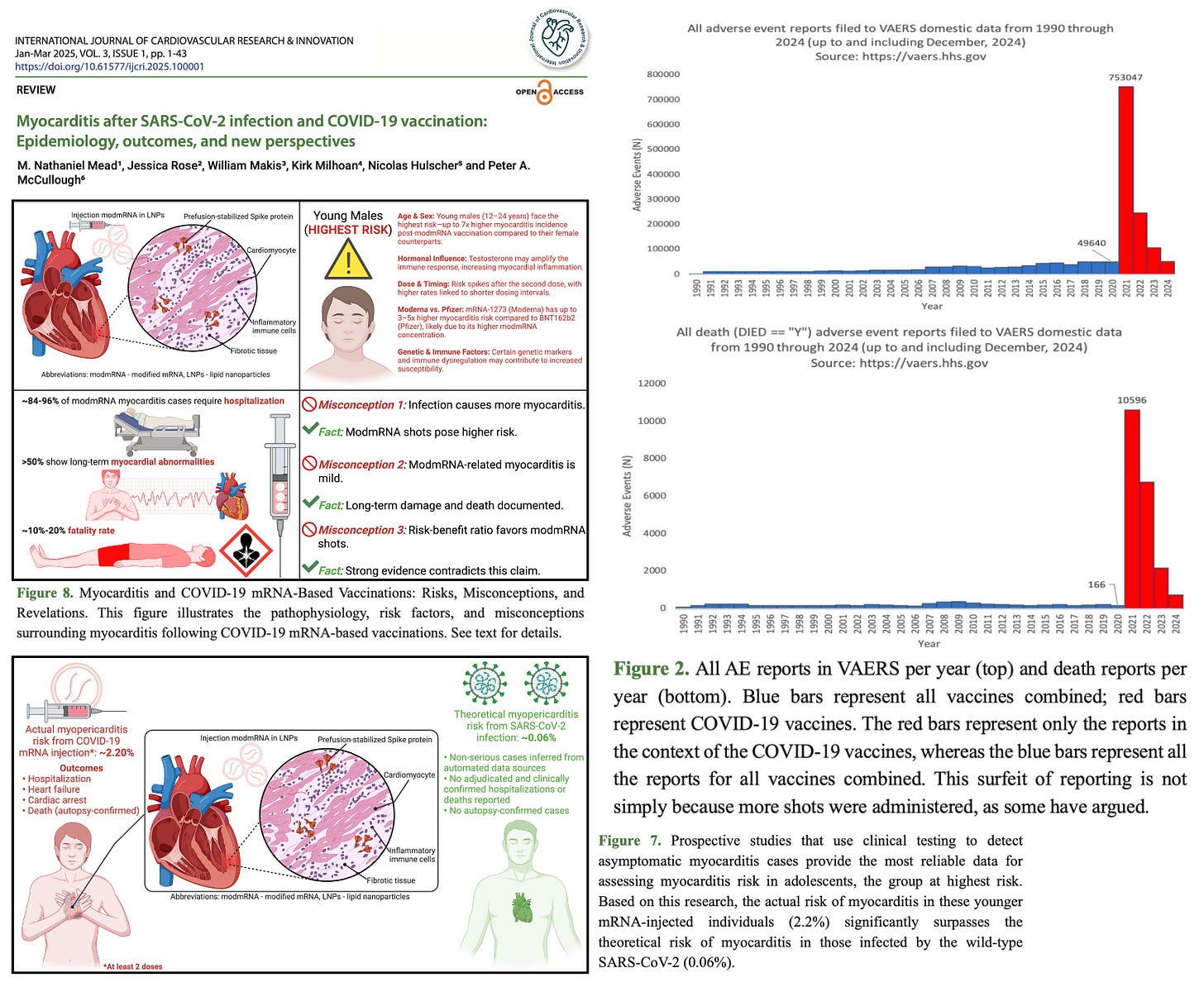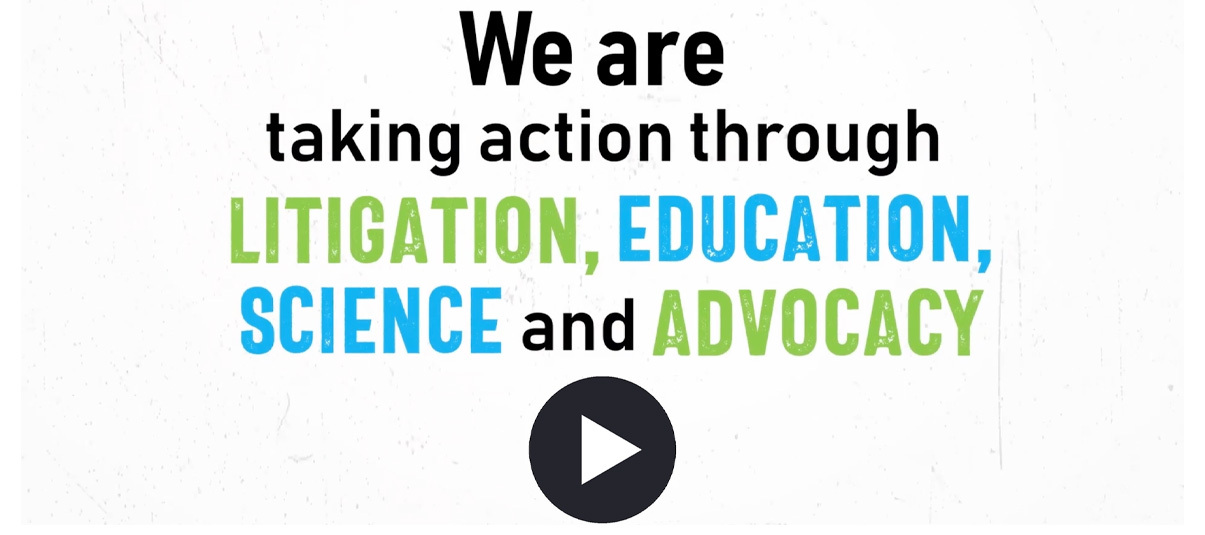A Speculative Prediction as to Why Peter Marks Was Afraid to Let Secretary Kennedy Access the VAERS Data
What could the larger set of VAERS data actually show?
Andrew Wakefield’s life has been utterly changed since he discovered a possible link between the combined MMR vaccine and ‘timing’ with regard autism onset in young African American males (see Hooker and Thompson)). His findings showed that if the combined MMR vaccine is given too early (less than 18-36 months of age) – especially to young African American males – autism likelihood is increased. To be fair, all he ever claimed was that it was less risky – in the context of autism development – to give the single Measles, Mumps, Rubella vaccine to earlier specific demographics, as opposed to the combined MMR vaccine.
Everyone could have “saved face”, and been safer, if you think about it. You can watch VAXXED to get the details on this story here.
Just in case you don’t know, Wakefield had a very distinguished and recognized career before he tried to tell the public about what he found in his research that linked combined MMR vaccine timing to autism in specific demographics. I was always under the impression that what distinguished scientists found as the result of hard work and study was to be respected by peers, and that as a result, scientific journals would publish any cutting edge data for the benefit of all.
Wakefield was born in Eton, England and became a surgeon following medical school at St. Mary’s Hospital Medical School at the University of London. He earned a Fellowship of the Royal College of Surgeons (FRCS) in 1985, loved gastroenterology, and focused on the study of inflammatory bowel diseases like Crohn’s disease. In the late 1980s and early 1990s, he joined the Royal Free Hospital in London, where he worked on the liver transplant program and later became a senior lecturer and honorary consultant in experimental gastroenterology at the Royal Free and University College School of Medicine. During this time, he studied the mechanisms of gastrointestinal disorders, with a focus on the possible role of viral infections, including measles.
His most infamous work: a 1998 study published in The Lancet that described this connection between the MMR (measles, mumps, rubella) vaccine and autism in a small group of children with gastrointestinal symptoms. The paper didn’t go down very well with some. After many years of partial retraction and clear hardcore pressure and eventual disavowance of its conclusions by its authors, in 2010, the paper was fully retracted. The UK’s General Medical Council found Wakefield guilty of serious professional misconduct, called him an irresponsible liar, and struck him off the medical register, ending his career as a practicing physician in the UK. He then moved to the United States where he has since become a successful film-maker.
We are all here to do what we are all here to do, aren’t we?
Now the reason I wanted to scribble this down quickly in-between other articles is because of this recent “incident” with Peter Marks (former director of the FDA’s Center for Biologics Evaluation and Research (CBER)). He wanted to deny Secretary Kennedy full access to the VAERS data. According to Marks, in an interview with the Associated Press on April 7, 2025, he initially attempted to collaborate with Kennedy by developing a “vaccine transparency action plan”. The plan would “allow” Kennedy’s team to read thousands of VAERS reports but would also explicitly bar them from directly editing or altering the data. Why would we want to alter the data? What a weird thing to say. Or is it?
Marks was apparently concerned that unrestricted access to a public pharmacovigilance database could lead to manipulation, misrepresentation, or even deletion of the sensitive information, which includes confidential personal and medical details. He argued that while he was open to making VAERS more transparent, that proposing initiatives like public listening sessions and independent expert reviews would give Kennedy’s team full control of the data, which Marks deemed a step too far. So weird. Boy, the answers are always in the questions, aren’t they?
The question becomes: Why would he do this? I mean, it’s one thing that the non-fully transparent VAERS data (the set can we lesser people can download from the website https://vaers.hhs.gov) has been screaming ‘there’s something here!’ since 2021 [for some reason], and that the owners of the data don’t seem to notice, but it’s another thing that there could be something even more illuminating in this data as yet unrevealed. What could be so worth hiding beyond the stuff we’ve already found?

Let me be speculative for a moment. Is it possible that the fuller set of VAERS data – that does include more comprehensive demographic data (allegedly) – would reveal something similar to what Wakefield found, if analyzed? It’s certainly not a stretch, is it? I mean, considering that it’s not controversial whatsoever that different viruses affect people differently according to racial disparity, why wouldn’t it be possible for vaccines to do so as well? After all, many vaccines are built on the backbones of the viruses they are meant to immunize against. HLA gene variations can affect responses to hepatitis B vaccines, for example. Or maybe adjuvants affect people differently according to age? Ahem.
So I predict, just for fun and entertainment of course, that when the VAERS books become transparent, and some brilliant data scientists analyze it, many more connections between [age of] injection [and racial disparity links] and adverse event onset (including autism) are going to be discovered. The thing that boils my blood on hiding data in general, and the VAERS in particular, is that this data is meant to serve as a safety signal warning system FOR THE PUBLIC. It is public data – every single VAERS entry represents a person’s documented experience with an adverse event in the context of a biological (vaccine). And contrary to Peter Marks’ concerns, there is no incentive in a boring old data analyst to make things up or to hide things. If patterns emerge, then patterns emerge. We don’t make up stories, and are not incentivized by profit. Most of us are just nerds who love truth. Emergent patterns from data are like beautiful truth.
The implications of any emergent patterns demonstrating links between particular subsets of data that may affect profit margins or public health narratives are for the lawyers to sort out, I suppose – not to mention the poor people who have suffered damages at the hands of an industry that is liability-free and exceedingly rich and influential.
When you think about it from a cold, plotting political point of view (which you must do since SARS-2 was entirely politicized), imagine the massive population of voters you might “lose” if said voting population found out that they’ve been deceived for decades, and horror or horrors, injected [unnecessarily/prematurely] with vaccines that could be affecting their children in negative physiological ways, for example.
“Anti-vaxxers” are crazy, aren’t they?
Here’s one of my favorite songs by The Jam in honor of Andrew.
“What a catalyst you turned out to be.” Paul Weller
Republished with permission from Jessica Rose
********************************************************************************************************************
If you find value in the work we do at Children’s Health Defense Canada, please consider making a donation so we may continue to advocate for and protect our most valuable resource…our children.


